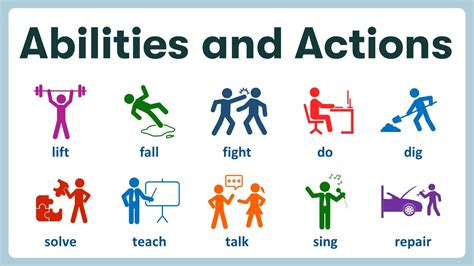Intro
Occupational therapists play a vital role in helping individuals with physical, emotional, or cognitive disabilities to live their lives to the fullest. These healthcare professionals work with patients to identify and overcome obstacles that prevent them from participating in everyday activities, thereby improving their overall quality of life. From children with autism to adults with chronic illnesses, occupational therapists make a significant impact on people's daily lives.

Occupational therapy is a client-centered practice that focuses on enabling individuals to achieve their goals and participate in activities that are meaningful to them. By addressing the physical, emotional, and cognitive aspects of a person's life, occupational therapists help patients to develop the skills and strategies needed to overcome challenges and live independently.
1. Enhancing Physical Abilities
Occupational therapists work with patients to improve their physical abilities, such as strength, flexibility, and coordination. This can involve creating customized exercise programs, practicing daily living activities, and using adaptive equipment to facilitate independence. For example, an occupational therapist might work with a patient who has had a stroke to regain the use of their arm and hand, enabling them to perform tasks such as dressing and feeding themselves.

Examples of Physical Abilities Enhanced by Occupational Therapists
- Regaining strength and mobility after surgery or injury
- Improving balance and reducing the risk of falls
- Enhancing fine motor skills for activities such as writing and using utensils
- Developing strategies for managing chronic pain
2. Developing Cognitive Strategies
Occupational therapists also work with patients to develop cognitive strategies that help them to manage daily tasks and activities. This can involve creating schedules, using memory aids, and practicing problem-solving skills. For example, an occupational therapist might work with a patient who has dementia to develop a routine for completing daily tasks, such as taking medication and preparing meals.

Examples of Cognitive Strategies Developed by Occupational Therapists
- Creating schedules and routines to enhance organization and time management
- Using memory aids such as calendars and reminders to improve memory
- Practicing problem-solving skills to enhance independence
- Developing strategies for managing stress and anxiety
3. Promoting Emotional Well-being
Occupational therapists recognize the importance of emotional well-being in overall health and quality of life. They work with patients to identify and address emotional challenges, such as anxiety, depression, and trauma. This can involve practicing relaxation techniques, developing coping strategies, and engaging in activities that promote emotional regulation.

Examples of Emotional Well-being Promoted by Occupational Therapists
- Practicing relaxation techniques such as deep breathing and meditation
- Developing coping strategies for managing stress and anxiety
- Engaging in activities that promote emotional regulation, such as art and music therapy
- Building self-esteem and confidence through positive reinforcement
4. Enhancing Social Participation
Occupational therapists also work with patients to enhance their social participation and engagement in activities that are meaningful to them. This can involve developing social skills, such as communication and teamwork, and participating in group activities that promote social interaction.

Examples of Social Participation Enhanced by Occupational Therapists
- Developing social skills such as communication and teamwork
- Participating in group activities that promote social interaction, such as sports and hobbies
- Building relationships with family and friends through shared activities
- Enhancing community participation through volunteering and civic engagement
5. Providing Education and Support
Finally, occupational therapists provide education and support to patients and their families to enhance their understanding of the therapy process and promote continued progress. This can involve educating patients on the use of adaptive equipment, providing strategies for managing challenges, and offering support and guidance throughout the therapy process.

Examples of Education and Support Provided by Occupational Therapists
- Educating patients on the use of adaptive equipment and technology
- Providing strategies for managing challenges and overcoming obstacles
- Offering support and guidance throughout the therapy process
- Collaborating with other healthcare professionals to ensure comprehensive care
By addressing the physical, emotional, and cognitive aspects of a person's life, occupational therapists play a vital role in improving daily lives. Whether it's enhancing physical abilities, developing cognitive strategies, promoting emotional well-being, enhancing social participation, or providing education and support, occupational therapists make a significant impact on people's lives.
We hope this article has provided you with a deeper understanding of the important work that occupational therapists do. If you have any questions or comments, please don't hesitate to reach out. Share this article with others who may be interested in learning more about occupational therapy.
What is occupational therapy?
+Occupational therapy is a client-centered practice that focuses on enabling individuals to achieve their goals and participate in activities that are meaningful to them.
What are some examples of activities that occupational therapists might work on with patients?
+Examples of activities that occupational therapists might work on with patients include dressing and feeding themselves, using the bathroom, and participating in hobbies and interests.
How can I find an occupational therapist in my area?
+You can find an occupational therapist in your area by contacting your healthcare provider or searching online for occupational therapy services in your area.
